Japan-Germany Relations
Japan-Germany Summit Meeting
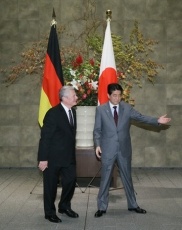 (Photo: Cabinet Public Relations Office)
(Photo: Cabinet Public Relations Office)
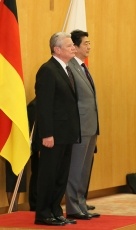 (Photo: Cabinet Public Relations Office)
(Photo: Cabinet Public Relations Office)
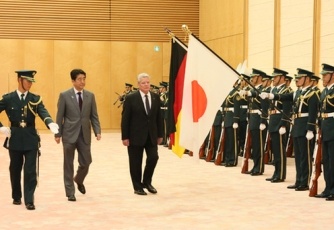 (Photo: Cabinet Public Relations Office)
(Photo: Cabinet Public Relations Office)
On November 14, commencing at 6:40 p.m. until 7:40 p.m. for approximately 60 minutes, Mr. Shinzo Abe, Prime Minister of Japan, held a summit meeting with H.E. Mr. Joachim Gauck, President of the Federal Republic of Germany, who is making an official working visit to Japan. The overview is as follows.
1. Bilateral relations
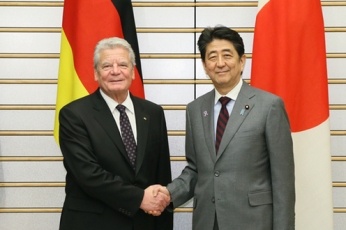 (Photo: Cabinet Public Relations Office)
(Photo: Cabinet Public Relations Office)
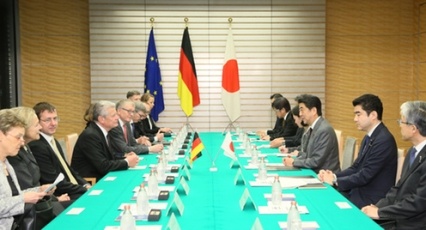 (Photo: Cabinet Public Relations Office)
(Photo: Cabinet Public Relations Office)
(1) At the outset, Prime Minister Abe welcomed President Gauck on his first visit to Japan, and voiced his hope to use this visit as an opportunity to further advance the relationship between Japan and Germany, which play important roles in the peace, stability, and prosperity of the international community as the leaders of Asia and Europe.
(2) In response, President Gauck thanked Prime Minister Abe for the warm welcome, and expressed the view that Japan and Germany are connected by a bond of deep friendship and share common values. President Gauck stated that Japan and Germany also share many points in common economically and politically, and have developed in accordance with the rule of law, and on that basis he hopes to pursue cooperation in many fields.
2. Cooperation between Japan and Germany in international society
The two leaders confirmed that Japan’s policy of proactive contribution to peace and the expansion in Germany’s proactive international contributions are equivalent, and were in complete agreement that in order to maintain and strengthen the international order based on fundamental values and rules, Japan and Germany will cooperate more closely, while coordinating with the international community.
3. Regional situations
 (Photo: Cabinet Public Relations Office)
(Photo: Cabinet Public Relations Office)
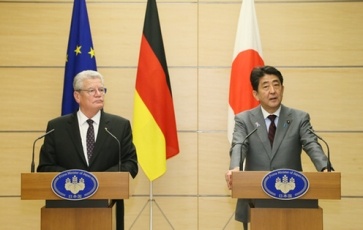 (Photo: Cabinet Public Relations Office)
(Photo: Cabinet Public Relations Office)
 (Photo: Cabinet Public Relations Office)
(Photo: Cabinet Public Relations Office)
After the summit meeting, commencing at 8:05 p.m. for approximately 75 minutes, Prime Minister Abe and his wife hosted a banquet to welcome President Gauck and Ms. Daniela Schadt.
The banquet was attended by guests from various sectors who have a connection with Japan-Germany relations and was held in a friendly atmosphere.

